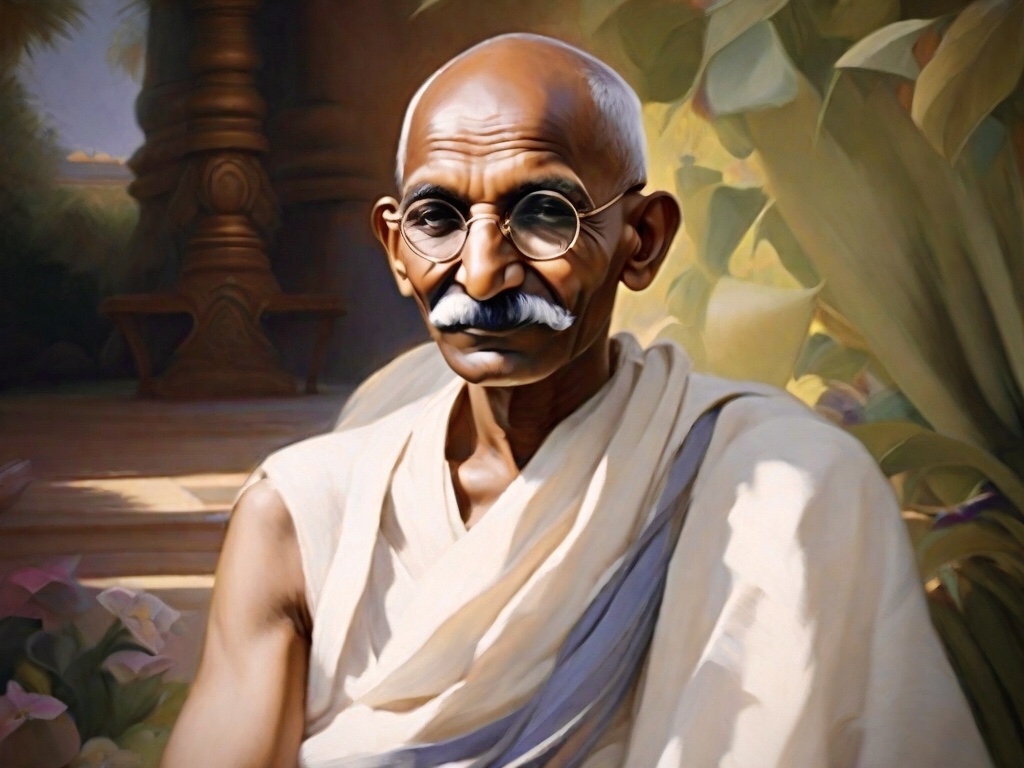Mahatma Gandhi, the apostle of peace, left an indelible mark on the world with his unwavering commitment to non-violence and constructive dialogue. In today’s strife-ridden world, where wars have torn the lives of common people asunder, Gandhi’s teachings resonate more than ever. On the occasion of his Birth Anniversary, it is essential to reflect upon the profound wisdom of Gandhi’s ideology. By delving into his message of non-violence, we can uncover invaluable lessons that hold immense relevance for the contemporary world.
The Ideology of Non-Violence
Gandhi’s core belief in non-violence (Ahinsa) was not merely a passive resistance; it was an active force for positive change. He understood that true strength lies in controlling anger and hatred, fostering understanding, and empathizing with others. His philosophy encouraged individuals to confront adversity with love, compassion, and unwavering resolve, creating a profound impact on societies and individuals alike.
Non-Violence as a Path to Transformation
Gandhi believed that non-violence was not a sign of weakness but the epitome of courage. His philosophy emphasized understanding, empathy, and the power of dialogue. In a world where conflicts seem insurmountable, Gandhi’s teachings remind us that peaceful means can lead to profound transformations. By embracing non-violence, individuals can break the cycle of hostility and work towards harmonious coexistence.
Relevance in Today’s World
The world today is in dire need of Gandhi’s wisdom. From interpersonal conflicts to international disputes, his principles can serve as a guide for resolving issues through understanding and dialogue. Gandhi’s approach emphasizes the power of dialogue, mutual respect, and empathy – principles that can bridge divides and pave the way for peaceful coexistence. In a world weary of violence, embracing non-violence can open the doors to sustainable solutions. By fostering compassion, listening actively, and promoting non-violence, societies can overcome hatred and division, paving the way for enduring peace.
Lesson To World Leaders
Gandhi’s leadership was defined by his ability to inspire change through non-violence and constructive dialogue. Today’s world leaders can draw inspiration from his approach. By fostering open communication, understanding diverse perspectives, and promoting non-violent resolutions, leaders can create environments where conflicts are defused, and societies thrive.
My views: Mahatma Gandhi’s teachings on non-violence continue to be a guiding light, illuminating the path toward a more harmonious world. In an era where discord often overshadows dialogue, his lessons resonate profoundly. It is a call to action, urging individuals and leaders alike to embrace non-violence as a transformative force. By following Gandhi’s legacy, we can build a world where understanding triumphs over animosity, compassion conquers aggression, and every individual contributes to peace. In the words of Gandhi himself,
"Non-violence is the greatest force at the disposal of mankind. It is mightier than the mightiest weapon of destruction devised by the ingenuity of man."Let us heed these words and work towards a world where non-violence reigns supreme, ushering in an era of lasting harmony and understanding.
#AskDushyant



Leave a Reply